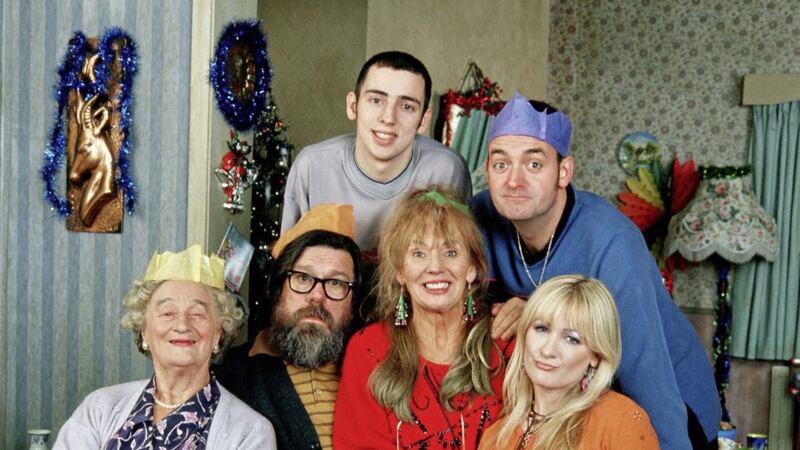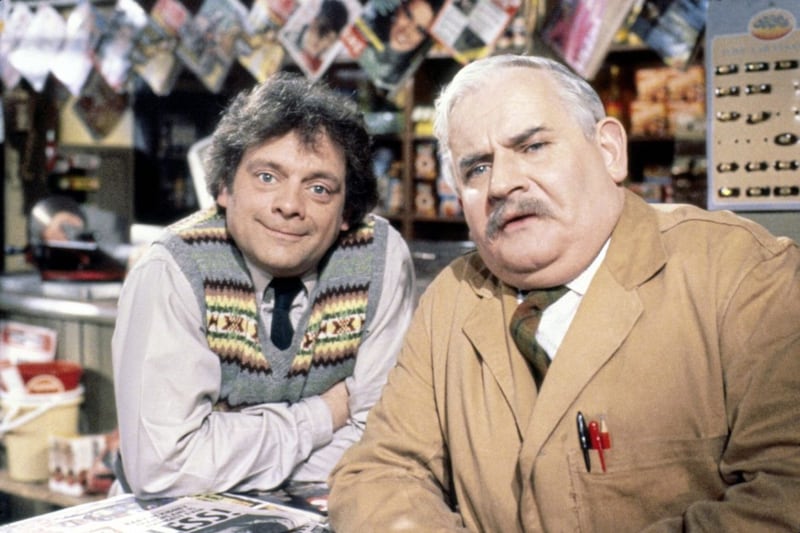We got a television set in 1960, a 14-inch screen, black and white, with a tasteful faux-walnut surround.
What a palaver it was to watch anything. I had to stand on the piano stool holding the indoor aerial aloft, in the hope that the blizzard of interference on-screen would resolve itself into a picture as the set warmed up. This, the installation man attributed to ‘atmospherics’.
We had a choice of two channels, only one of which my father approved. The BBC with its brief to inform and educate, was a purveyor of reliable news, a pillar of moral rectitude and received pronunciation. Our copy of Radio Times had its own gilt-lettered leatherette cover. ITV he dismissed (on no grounds whatever) as inferior and not to be trusted.
Every evening after ‘The Archers’ on radio, the televisual bill of fare was studied and suitable programmes chosen. Should anything disappoint, the set was switched off. I was routinely dismissed from the room for the deemed ‘unsuitable’ Wednesday Play. The moral policing continued till I was woman big. We, eighteen-year-old resident students at teacher training college in the early sixties, had to plead with the nuns to be allowed to watch ‘Top of the Pops’ in the Common Room. The set was ceremonially switched on at 7:25pm and the nun fortunately evacuated prior to Pan’s People appearing, wearing little but wide smiles and dangerously inadequate wisps of chiffon. Later, ‘The World of Tim Frazer’ was a must-see series that kept the streets and pubs empty on Friday nights and persuaded callow youths that the simple purchase of a sheepskin jacket would guarantee success with women.
That was then. This is now, and in the interim, television, its multiple channels and myriad sophisticated add-on services have made it the heart of the home. It’s the baby-minder, the granny guardian, the channel-hopping unemployed’s time-killer. For many, television has no ‘off’ button. In some families, it’s on in the morning before the kettle. Most of our youngsters have a set in their bedrooms as soon as they’re in double figures. Lord knows what they’re looking at in dead of night.
We watch with no sense of irony a comedy series based entirely on the couch-potato Royle family who conduct all their conversations without taking their eyes off an out-of-shot screen – a skill we’ve unwittingly become adept at ourselves. Of course there’s barely anyone left (apart from elderly technophobes like me) who’s watching tired old terrestrial TV, with its formulaic policy of doing a decent competitive idea to death – and beyond. Cooking, sewing, pottery, jewellery; skating, singing, dancing and now gawdelpus, masked singing and masked dancing and the hysterical sobfest that follows winning or losing. Whatever happened to gracious success and dignified defeat? Purgatory will be a place of endless lame-duck quizzes, pointless panel shows and their relentlessly enthusiastic presenters. Somebody please make it stop.
Lockdown destroyed the even tenor of our days, disrupting our patterns of living and encouraging us to coddle ourselves. The self-motivated exercised the body, stimulated the intellect and nourished the soul, but many of us just sat, passively viewing rubbish. Who’d ever have thought that watching ordinary people on television, watching other people on television, would have half the country riveted to their screens. With ‘Gogglebox’, we’ve truly reached the nadir of the mind-numbing dross. No better critique of the state of the nation.
An American university has just published a report claiming that watching a lot of television in middle-age is linked to deterioration of brain health. Between the ages of 30 and 50, every extra hour “beyond average” of non-stimulating sedentary activities, such as television viewing, “is linked to a reduction in grey matter and greater risk of developing cognitive impairment.'' They mean dementia. Ten thousand adults, average age 59, who watched television “very often” were monitored over 15 years and “showed a greater decline in cognitive function than others who seldom or never watched.”
Oops. That’s an end to bingeing on entire box sets at a single sitting then…
Mind how you view.








